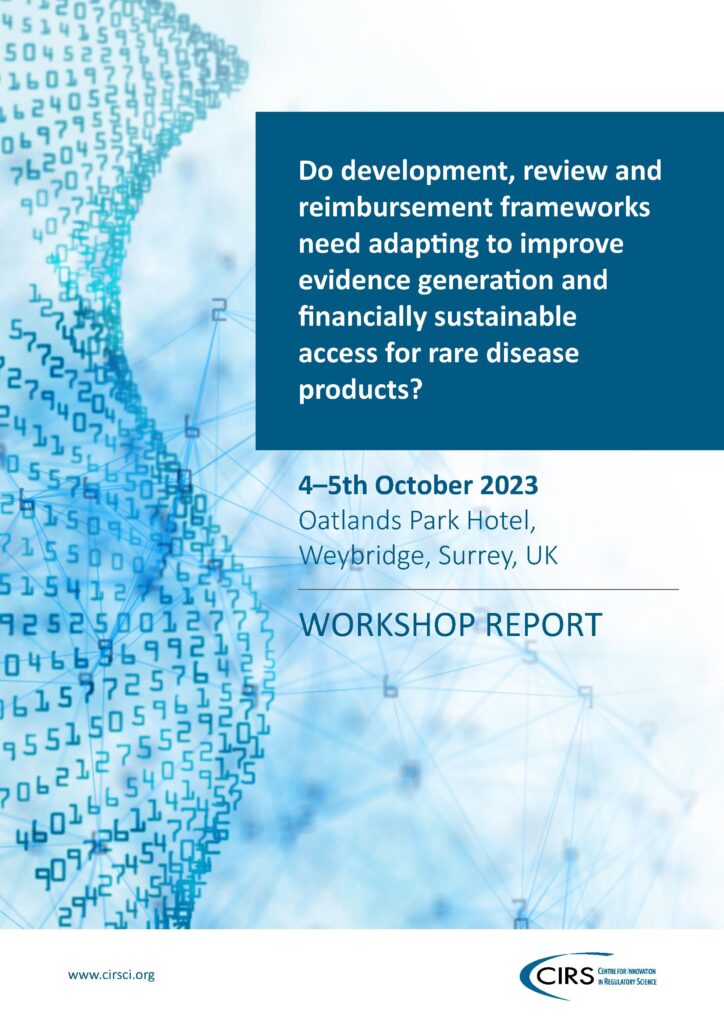There are an estimated 300 million people across the world affected by around 7000 known rare diseases. Challenges in bringing treatments to market for these conditions include small patient populations, which make randomised controlled trials (RCT) difficult to conduct, and the frequent need for companion diagnostics. Alternative sources of evidence – including real world evidence (RWE) – are often used to support regulatory approval and health technology assessment (HTA) submissions for rare disease treatments. The acceptability of this evidence varies across countries and between regulatory and HTA agencies.
Incentives for research and development (R&D) for rare disease treatments have been in place for over 20 years in jurisdictions including Europe and the US. These include a period of market exclusivity and a range of support from regulatory agencies. CIRS data shows that the number of new treatments with an orphan drug designation given regulatory approval has increased over time, suggesting that incentives have encouraged R&D. With uncertainty in the evidence base for many of these orphan drugs, there is a challenge for HTA agencies to be able to recommend orphan drugs and for payers to fund them. Some, but not all HTA agencies, have tailored approaches when assessing orphan drugs.
The European Commission (EC) is conducting a general reform of the legislative framework for the pharmaceutical industry, including modifications or orphan drugs incentives. Coupled with the new EU HTA Regulation, it is timely to evaluate the review and reimbursement frameworks for rare disease treatments and to explore the potential for improvements.
In this workshop, CIRS brought together senior representatives from the international pharmaceutical industry, regulatory agencies, HTA agencies, payers, patient community and academia to identify challenges and opportunities or adapting regulatory or reimbursement frameworks for rare disease products, and to develop recommendations on hw these can improve to best support stakeholder evidence needs.
Workshop objectives
- Identify different stakeholder perspectives on the challenges and opportunities for adapting or improving regulatory or reimbursement frameworks for rare disease products.
- Discuss how best to align evidence generation during development to meet the different needs of regulators, HTA and payers, enabling decision making at the time of review and reimbursement.
- Make recommendations on how best to support evidence generation, particularly focused on regulatory, HTA and payer needs to address uncertainty at the time of decision, so as to enable greater patient access to rare disease products.

